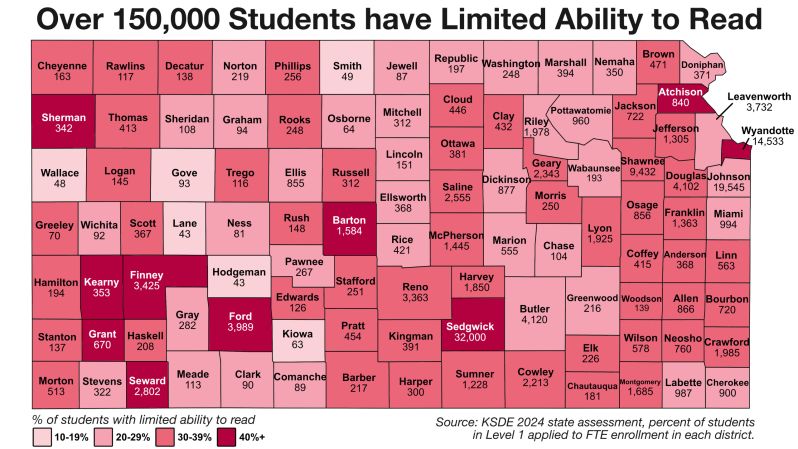The October meeting of the Kansas State Board of Education contained another déjà vu moment: attempting to cover up another violation of state laws designed to improve student outcomes (see here and here for past examples.)
State Board Chair Cathy Hopkins commented on a Kansas Policy Institute discovery that school districts were not complying with the Every Child Can Read Act, saying, “What was put out is that the law was broken, which is completely untrue. That report is due to the legislature in January. So on/by June 30, districts are asked to provide information, which then gives KSDE staff time to put all that data together, make sure they have the data that is required and work on that until that report is then given to the legislature in January after they start session.”
KSDE lawyers either gave her bad advice or sat silently while Hopkins made an inaccurate statement.
KSA 72-3622 says, “On or before June 30 of each school year, each school district shall report to the state department of education:”
- The number of third-grade students in the school district,
- The screening and assessment data from at least the preceding two school years that the school district is using as a baseline to evaluate student progress in literacy; and
- The percentage of students who are proficient, moving toward proficiency, or deficient, with percentages provided for all students and student subgroups.
“Shall report” is not a suggestion; it’s a legal obligation placed on school districts, and it cannot be waived by the State Board of Education. The results of that reporting are not provided to the Legislature until the next session begins, but districts are legally required to report to KSDE by June 30. Our investigation found that reports for only 229 of the state’s 286 districts were provided, and none of them contained all of the required information.
Part of the blame for not meeting the June 30 deadline falls on the Department of Education. It provided the fill-in-the-blank forms to districts, and the forms did not request all of the data stipulated in the law.
The State Board of Education is supposed to run the Department of Education. Instead, it seems that the Department runs the Board, which accepts excuses for blatant legal violations and takes no action.

This isn’t the first time that the State Board of Education allowed legal obligations to be ignored to avoid holding administrators accountable for improving outcomes, and it will probably continue until enough legislators summon the courage to stand up for students and compel the State Board of Education to fulfill its constitutional and statutory obligations. Until then, students will continue to suffer..










